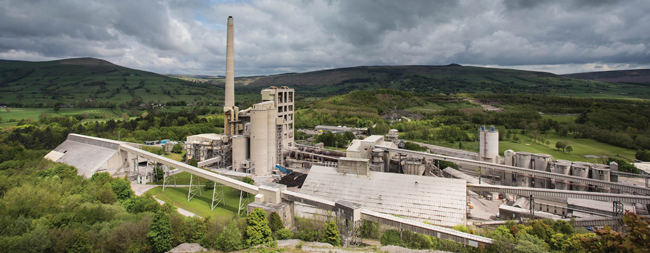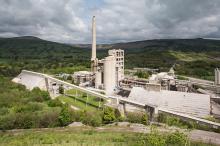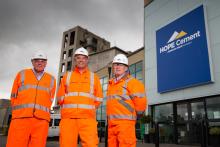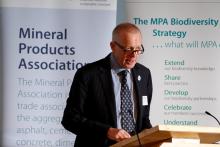
An independent report on the economic impact of the UK’s largest cement works has found that it contributes £53m to its local economy.
The assessment of the works at Hope in the Peak District National Park (PDNP) sought to establish how much the works contributes both financially and in terms of employment to the Park’s economy.
The report shows that in 2017 the works – which is owned by construction materials group
The economic impact assessment report was commissioned by Breedon from consultancy Mott Macdonald.
The economic contribution in 2017 represents an increase of more than 10% over 2013, the year for which Mott Macdonald produced its last report, when the Hope works contributed around £45m, with roughly the same number of direct employees.
In a region with a long-established mineral and aggregates industry, the Hope cement works accounts for around 15% of UK cement production, which is currently running at almost 10 million tonnes per annum.
The report found the economic benefits of the 763-acre site extend beyond its direct footprint. Nearly half its direct employees live within the PDNP itself, supporting the area by spending their wages locally - around £500,000 of induced GVA compared to £51.1m of direct GVA and £1.4m of indirect GVA).
Around £3.7m of supplier expenditure by the site is with firms based in the PDNP, notably local industry contractors and manufacturing companies supplying specialist products and services in the areas of welding, scaffolding, engineering, joinery, mechanics, haulage, fabrication, photography and catering.
The report found that these indirect purchases of goods and services along the supply chain, coupled with the spending on direct and indirect employee wages, create a ripple effect and support further rounds of economic activity. In 2017, the Hope cement works supported nearly 60 additional jobs from those direct and indirect impacts, contributing another £2m to the local economy.
The Hope cement works has manufactured cement for almost 90 years and Breedon says it has a long tradition of actively engaging with the local community through its many social and communal activities.
These include access for local residents to the Hope works estate and the Earles Sports and Social Club as well as on-site open days, and tours and a range of local business and community partnerships.
Ed Cavanagh, works manager at the Hope site, said: “It is gratifying to see the healthy increase in our contribution to the local economy over the past few years. We’re very proud of the part we play in the lives and employment of people in the Peak District National Park.”
Hope has the capacity to produce around 1.5 million tonnes of Breedon Portland, Breedon Portland Plus and Breedon Rapid cement per year.
More than half the cement made at Hope is transported in bulk by rail to depots in the South East (Dagenham and Reading), West Midlands (Walsall) and North of England (Dewsbury), which Breedon says ensures the product is delivered as sustainably as possible.









